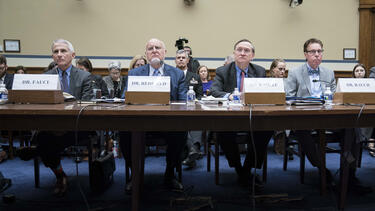COVID19
Going the Last Mile (with Evidence)
A study by Yale’s Mushfiq Mobarak and his colleagues found that nurses on motorbikes with vaccine-stocked coolers could help increase vaccination rates in rural Sierra Leone, showing that it is possible to get health interventions to the most remote and under-resourced areas cost-effectively, in ways that help ensure that the interventions are taken up and used.
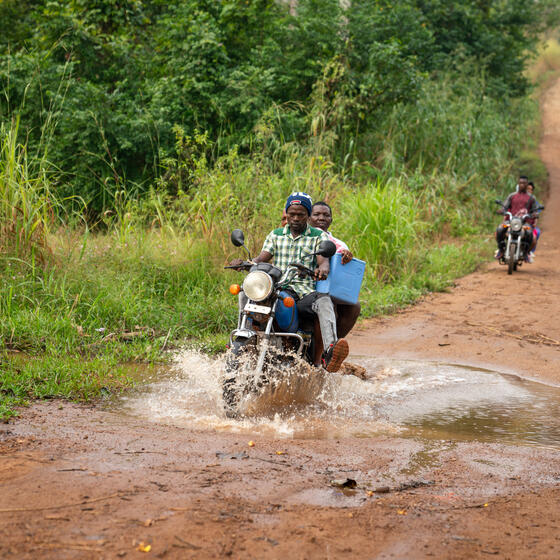
How Is the Pharmaceutical Industry Responding to COVID-19?
As pharmaceutical companies work to develop potential vaccines and treatments for COVID-19, they are operating under extreme pressure—as well as the restrictions on movement and interaction that are affecting all of us.

Making Sense of A Record-Breaking Wave of Unemployment Claims
A greater share of Americans filed for unemployment insurance in the week ending March 21 than in any prior week in American history. We asked Yale SOM's Paul Goldsmith-Pinkham for his perspective on this alarming statistic.
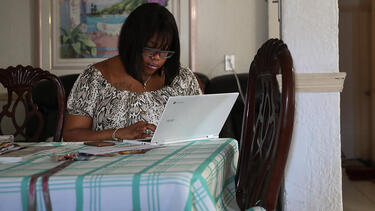
Anti-Asian Racism Exposes the Model Minority Myth
Yale SOM’s Michael Kraus and Eunice Eun argue that anti-Asian bias provoked by COVID-19 reveals the ongoing influence of racism in the country.
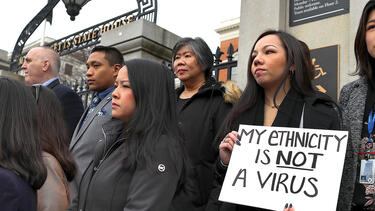
Economic Competition in a Time of Crisis
What will the sudden economic shock mean for competition and antitrust policy? We asked Yale SOM’s Fiona Scott Morton, an economist who served in the Antitrust Division of the U.S. Department of Justice, for her perspective.

Why Isolating Older Americans Would Be a Huge Mistake in Fighting the Coronavirus
In a Fortune commentary, Dr. Michael Apkon ’02, president and CEO of Tufts Medical Center, and Yale SOM’s Dr. Howard Forman and Jeffrey Sonnenfeld write that such an approach would be dangerous and ineffective.

Crashes and COVID-19 in Historical Context
The stock markets are reeling as fear and uncertainty about the global pandemic grow. We asked Yale SOM’s William Goetzmann, whose research includes financial history, to put the volatility into historical perspective.
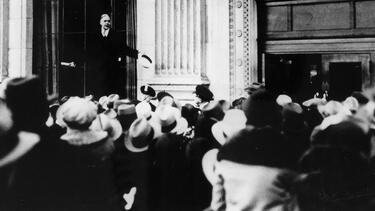
Why a Pandemic Leads to Panic Buying
We asked Yale SOM’s Nathan Novemsky, an expert in the psychology of judgment and decision-making, for his thoughts on how consumers are behaving during the COVID-19 pandemic and how they’re likely to view companies’ actions in the aftermath.
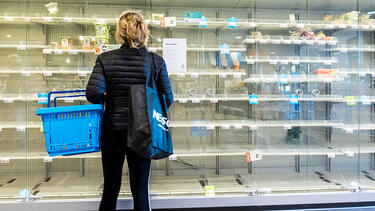
What the Plunge in the Stock Market Means for Individual Investors
We asked Yale SOM’s James Choi, who has examined the implications of academic research for personal finance, what studies say about how to respond to a market crash.

Why the WHO Was Afraid of Crying ‘Pandemic’
Yale SOM’s Saed Alizamir, with Francis de Véricourt of ESMT and Shouqiang Wang of the University of Texas at Dallas, recently published a study that uses game theory to play out the tradeoffs that the WHO and other public agencies face as they try to give timely warnings while maintaining their credibility.
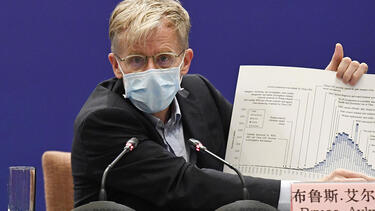
How Should the U.S. Government Respond to COVID-19?
On March 12, a group of public health experts assembled by Yale SOM’s Dr. Howard Forman released a proposal for a set of emergency public health, healthcare, and emergency support measures to respond to the growing COVID-19 outbreak.
